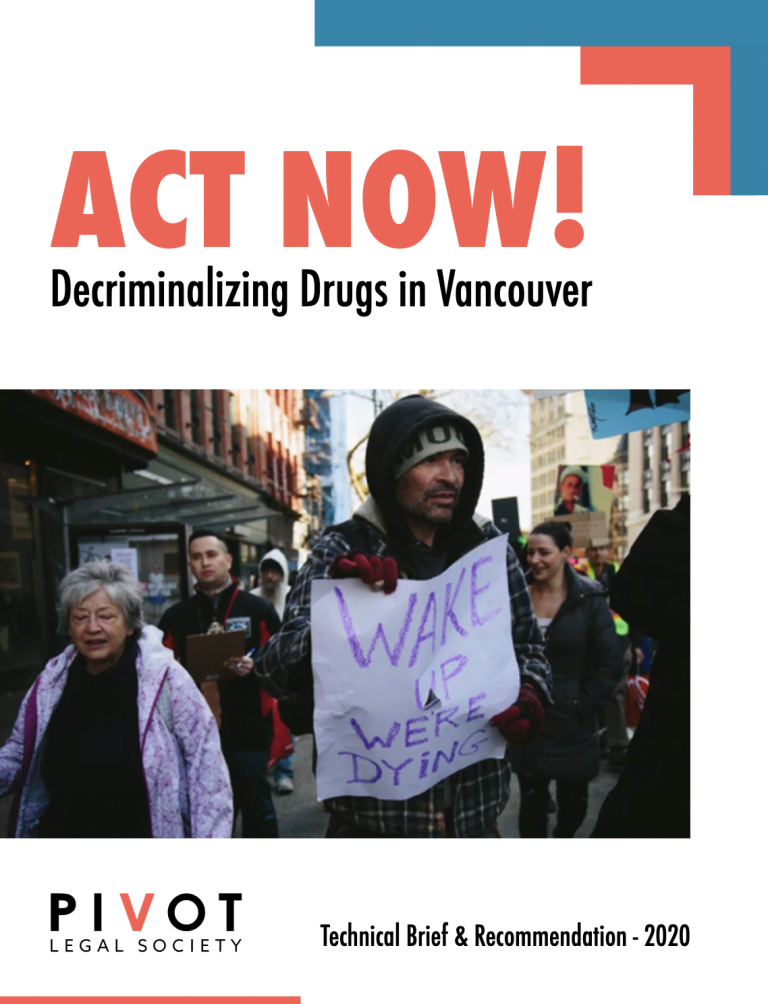1 search result
Recommendation 1:
Pursuant to section 56(1) of the Controlled Drugs and Substances Act, the City of Vancouver should apply to the federal Minister of Health for an exemption that applies to all people in the City of Vancouver against section 4(1) of the CDSA, on the basis that it is necessary for a medical or scientific purpose or is otherwise in the public interest.
In order to address the totality of overdose deaths in Vancouver, the exemption should apply broadly in terms of population, geography, and drug. The exemption should apply:
Support for a broad exemption is also provided by the extent of contamination in Vancouver’s street drug supply. In 2018, approximately 88% of tested street drug samples marketed as opioids tested positive for fentanyl. Fentanyl was found in samples believed to be depressants and stimulants alike. Street drugs themselves are constantly changing, and a static narcotic schedule (like the CDSA) is bound to be eclipsed by the reality of new compounds being formulated and used over time. Decriminalizing the possession of some drugs and not others, or some people and not others, would be arbitrary and illogical during a time when the risks are extreme for anyone who relies on an (ever-evolving) street market, however infrequently.
In order to address the totality of overdose deaths in Vancouver, the exemption should apply broadly in terms of population, geography, and drug. The exemption should apply:
- To any person who possesses drugs for personal use while in Vancouver and;
- In all instances meeting the offence criteria for simple possession, regardless of the substance in question.
Support for a broad exemption is also provided by the extent of contamination in Vancouver’s street drug supply. In 2018, approximately 88% of tested street drug samples marketed as opioids tested positive for fentanyl. Fentanyl was found in samples believed to be depressants and stimulants alike. Street drugs themselves are constantly changing, and a static narcotic schedule (like the CDSA) is bound to be eclipsed by the reality of new compounds being formulated and used over time. Decriminalizing the possession of some drugs and not others, or some people and not others, would be arbitrary and illogical during a time when the risks are extreme for anyone who relies on an (ever-evolving) street market, however infrequently.
-
Category and theme:
Audience:
Groups affected:
